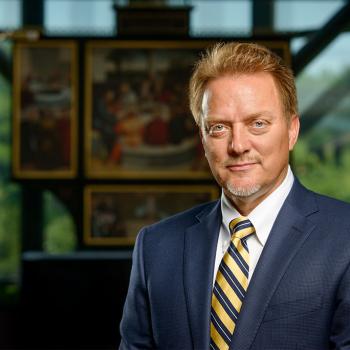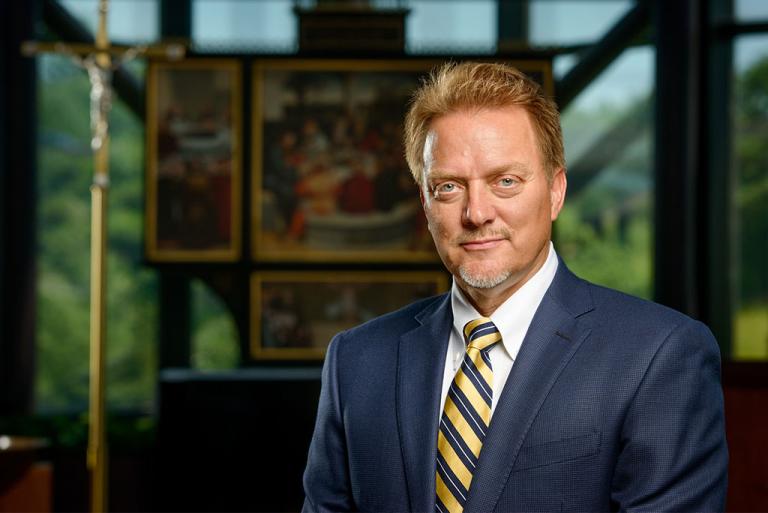October 8 Jews, Christian Civilizationism, and Finnish persecutors appeal to the Supreme Court.
October 8 Jews
American Jews for the most part (but not all) have been liberal Democrats. Because of their own experience of discrimination and oppression, they were strong supporters of the Civil Rights movement, which gave equal rights to black Americans, and they continued to support other “rights” movements for women, gays, and other minorities.
Now, though, they are feeling betrayed. After the October 7 attack on Israel by Hamas, in which 1400 Israeli men, women, and children were murdered and 240 taken hostage, the left has turned against not only Israel trying to defend itself but all Jews, to the point of attacking Jewish students and vandalizing Jewish-owned shops.
By the canons of woke progressivism, Jews are not included among the oppressed groups that are supposed to ally with each other. Rather, they are classified with the oppressors, those with “white privilege” who are “colonizers” and “occupiers,” whether they are Israelis or not.
Bret Stephens has coined the term “October 8 Jews,” for those who identified with the left on October 6, had a rude awakening on October 7, then recognized their betrayal on October 8.
Adam Milstein has written a plaintive article on the subject published in the Jerusalem Post entitled As Liberal Jews Feel abandoned by the Left: What’s next?
First, no more blind voting for Democrats or Republican for the sake of historical precedent. All Jews, including liberal Jews, must adopt a litmus test for candidates and support only those determined to fight antisemitism and support the U.S.-Israel alliance.
Second, pull support from organizations and academic institutions that promote the erasure of Jewish suffering and tacitly endorse Jew-hatred.
And finally, unite and support American organizations that protect and promote equality and inclusion rather than division and an ideology that aims to destroy Jewish life and American values.
See also this searing essay by John Podhoretz, who also refutes the false narratives taken up by Hamas and its woke allies (such as the Palestinians being the “indigenous” people of Judea).
Christian Civilizationism
You have heard of “Christian nationalism.” Andrew Beck says that what is really needed–and what most Christian nationalists actually yearn for–is “Christian Civilizationism.”
His article for the American Mind has the explanatory deck “Prioritize the civilization that has always been over the nation that never was.” America, Beck says, was never the kind of nation that could be “Christian,” as such, unlike perhaps European nations with a national church. The United States never constituted a “nation-state” like Europe had, with a unified culture that made nationalism possible. Christianity, though, has always influenced civilizations–and therefore nations–for the better. This is what we have lost and need to recover, including he says by political means. But, he says,
If harmonious Christian civilization is the destination, the wagon should not simply crash headlong into American political advocacy, capturing seats of power to codify Christian ethics, or using the power of government to evangelize. Rather, those who want Christian civilization should prioritize re-Christianizing America, not re-nationalizing Christianity.
Beck favors the American tradition of federalism, with a “loose union of localized states” that would allow Christians and other groups to live as they wish. The overall political goals would be modest: “The freedom of association, limited government, and natural law are enough to bring about safety, prosperity, and growth for those who are capable of self-government.”
Beck believes that Christianity would then flourish and become culturally influential again:
We must prove the truth of our words by our own lives; by the way we care for the bit of civilization we have been entrusted with—our homes and land, our children and spouses, our churches and cities, our enterprises and institutions.
I want a civilization Christianized not by mere laws or cultural artifacts, but by the genuine faith of the people who live there.
I see his point, but I wonder if we should prioritize civilization at all, much less turn it into an -ism. I’ve been thinking about C. S. Lewis’s point: “You have never talked to a mere mortal. Nations, cultures, arts, civilizations – these are mortal, and their life is to ours as the life of a gnat.” The Kingdom of Heaven is eternal, making it far more important than any kingdom of this world, all of which will pass away, though God reigns over them as well in a hidden way. But I suspect Christians who think in those terms will be, indirectly and ironically, the most, influential to nations, cultures, arts, and civilizations.
Finnish Persecutors Appeal to Supreme Court
In the continuing saga of the Finnish Lutherans being prosecuted for quoting the Bible on homosexuality, there has been another development.
Though the physician and member of Parliament Päivi Räsänen and the Bishop of the confessional Lutheran church Juhana Pohjola were acquitted of all hate crime charges by both the district court and the appeals court, Prosecutor General Raija Toiviainen is appealing those rulings to Finland’s Supreme Court.
The Supreme Court has not announced if it will take up the case. Paul Coleman of the Alliance Defending Freedom and part of the legal team defending the two thinks it is unlikely. He said in a statement,
“The state’s insistence on continuing this prosecution despite such a clear and unanimous ruling by both the Helsinki District Court and Court of Appeal is alarming. Dragging people through the courts for years, subjecting them to hour-long police interrogations, and wasting taxpayer money in order to police people’s deeply held beliefs has no place in a democratic society. As is so often the case in “hate speech” trials, the process has become the punishment.”
Exactly! “The process has become the punishment.” If found guilty, the accused would be punished by fines and a short jail term. But, as it is, they are being punished by a much more costly legal defense and legal proceedings that have extended for five years! This is surely calculated to have a chilling effect on any other Christian who dares mention publicly what the Bible says and what Christians have always taught about the sinfulness of same-sex intercourse.
And, as I keep saying, this is reason for Americans to be thankful for the 5th Amendment to the Constitution, which states “nor shall any person be subject for the same offence to be twice put in jeopardy of life or limb.” Forbidding “double jeopardy” means that Americans found guilty of a crime may appeal the court’s decision, but if found innocent, the prosecutors may not appeal that decision. Rather, the acquittal is final. Not all countries have this protection of civil liberties, which prevents prosecutors from just continuing to try a case in different courts until they get a conviction.
Dr. Räsänen and Bishop Pohjola are now facing triple jeopardy. And the prosecutor is reportedly considering the possibility of appealing an unfavorable Supreme Court ruling to the European Court of Human Rights. Which would subject them to quadruple jeopardy!













